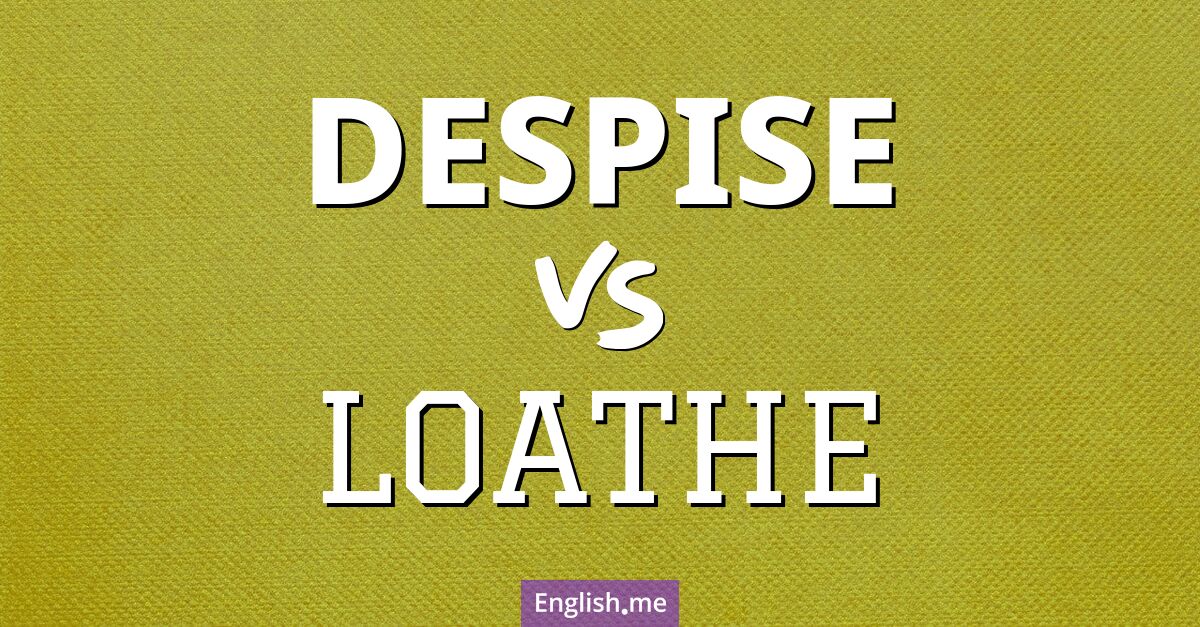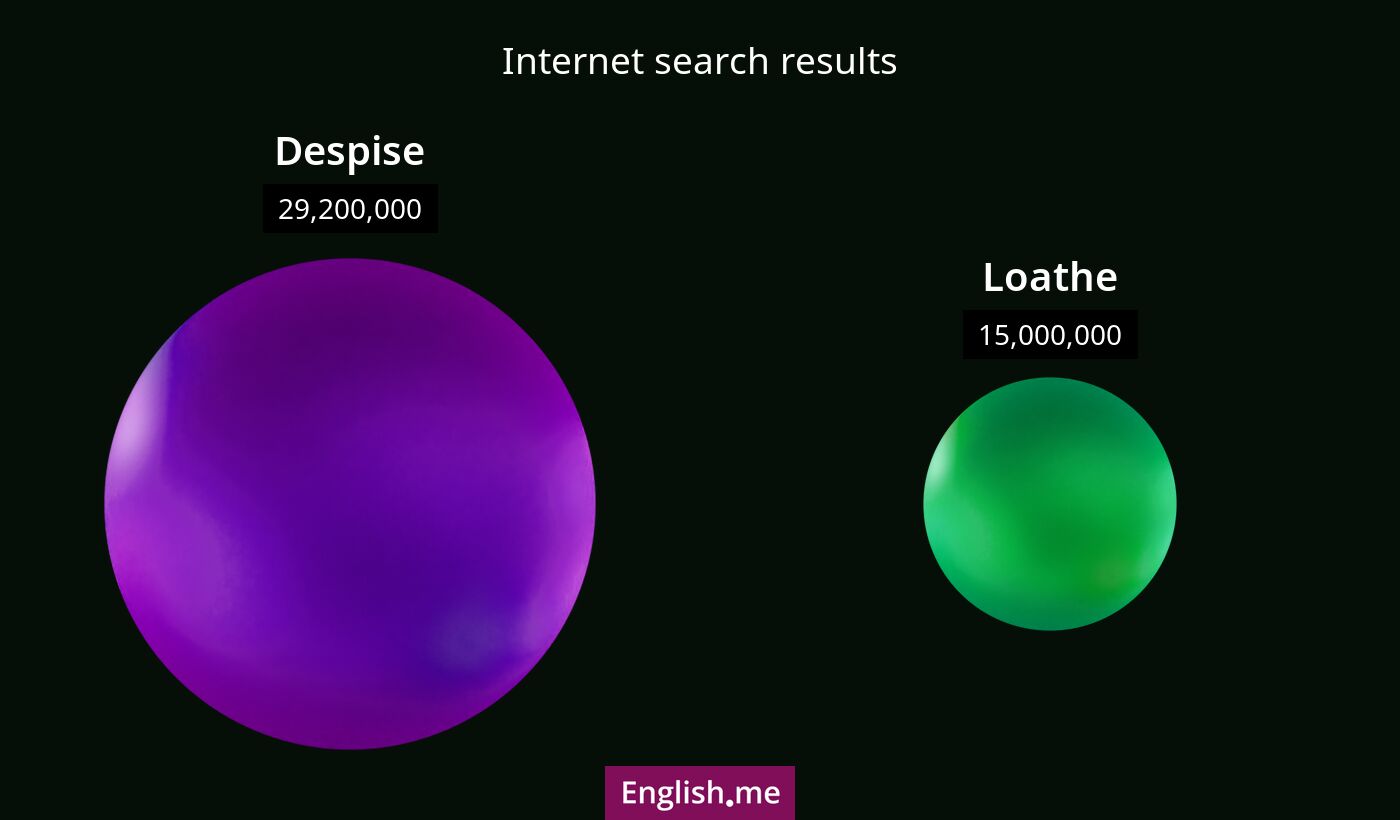"Despise" vs. "loathe": two faces of disdain
Reviewed and edited by  Lloyd Cooper 01/10/2024, 03:20
Lloyd Cooper 01/10/2024, 03:20
English.me team member

 What is similar?
What is similar?
Both "despise" and "loathe" mean to feel a strong dislike or hatred for someone or something.
 What is different?
What is different?
"Despise" can imply contempt as well as dislike, while "loathe" generally indicates an intense aversion or disgust.
 Which one is more common?
Which one is more common?

 Examples of usage
Examples of usage
Despise- She despises dishonesty in any form.
- I despise attending meetings that lead nowhere.
- He despises people who are arrogant.
- I loathe going to the dentist, but I know it's necessary.
- She loathes waking up early in the morning.
- He loathes noisy environments.

 English
English español
español française
française italiano
italiano deutsche
deutsche 日本語
日本語 polski
polski česky
česky svenska
svenska Türkçe
Türkçe Nederlands
Nederlands